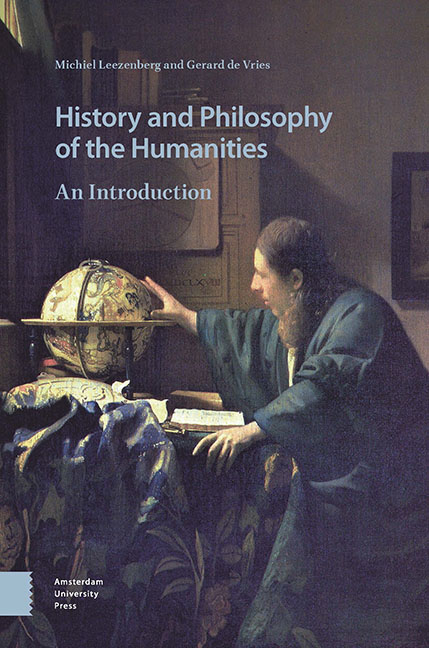1 - Introduction
Summary
The Tasks of the Philosophy of the Humanities
The *humanities include disciplines as diverse as literary theory, history, art history, musicology, linguistics, film studies, religious studies, and philosophy. The German term for these disciplines, *Geisteswissenschaften, was coined in the nineteenth century. In the Anglo-Saxon world, many of these disciplines used to be referred to as moral sciences; nowadays, alongside the term humanities, terms like humane sciences and the broader liberal arts are also used. In France, they belong to what is generically known as the sciences humaines. In many universities, the disciplines gathered together under these labels are united organizationally within a single university section or *faculty.
What, if anything, do these different disciplines have in common? Do they share some unity at the level of content; do they have a common core? Do they have a particular object or a particular method in common? Are they fruits from the same tree? At first sight, the differences seem to predominate. Academics working in the humanities conduct their work in a wide variety of settings such as university institutes, archives, museums, libraries, excavation sites, at home, and, increasingly, also on the internet and on social media. The topics they occupy themselves with diverge just as widely, as do the sources they refer to and the tools they employ. For many, it suffices to have a computer with a word processor, an internet browser, and perhaps a PowerPoint application at hand, and to have access to a good library, archives, or museum collections. Practitioners of other disciplines, however, will also need access to laboratories or to specialized software for their research.
Researchers in the various humanities disciplines often maintain more professional contacts with colleagues in their own discipline living abroad than with the members of their own faculty working in other fields. They publish their work in separate journals, and their books appear with different publishers. Even the languages in which their work is published may differ: whereas in some disciplines, only publications in English will be taken seriously, other disciplines do not have this tacit or explicit demand. Likewise, funding agencies and professional organizations may differ widely across disciplines.
- Type
- Chapter
- Information
- History and Philosophy of the HumanitiesAn Introduction, pp. 15 - 36Publisher: Amsterdam University PressPrint publication year: 2019



